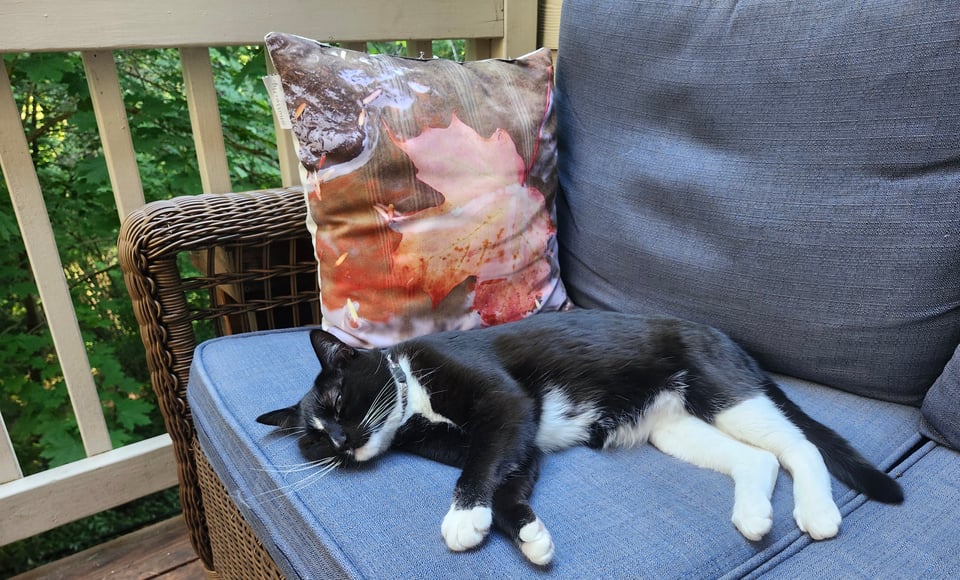Garbage in garbage out
Google put a box of AI-generated text at the top of their search results. If you don't know what that means, I'm talking about the slow-loading colorful text box you're seeing lately—it's Google's first step toward destroying the internet entirely (as I predicted last summer).
I am yet to meet anyone who is excited about this "feature"—at best people seem to begrudgingly accept it. But that doesn't mean there isn't joy to be found here: the feature is telling people to do absolutely bonkers things. Apparently Google thinks you can keep cheese from falling off pizza by mixing glue into the sauce, which was based on a decade-old joke from Reddit. Google is also telling people that geologists recommend eating "at least a few rocks per day", a suggestion it found on The Onion. I could go on, but others already have.
What I find interesting is how this happens. Hype aside, large language models aren't sentient. They are machines that are trying to guess the next word to say based on statistical probability—that's it. The fact that this ever results in coherent answers to questions is staggering. The problem is that it's factually wrong a lot, and getting it to be wrong less often is a very hard problem.
The glue pizza and the rock diet are both things that were posted to the internet as jokes. The machine, as it exists right now, can't detect these sorts of jokes, so it repeats them as though they are facts. I do not know which engineer thought it would be a good idea to include Reddit and The Onion in their training data, but including that had a predictable effect: jokes presented as facts. Garbage in, garbage out.
This has me thinking about my own mind. Now, obviously, I am not a large language model—I'm sentient. I have an understanding of myself as a person and the ability to sense whether something is a joke or not from cultural context. And when I read something, I'm not "training" my brain in the sense that a large language model is. But there's still a level on which thinking about the "garbage in, garbage out" is useful.
I am, as a person, the average of the people I hang out with and the information that I take in. If I spend an evening watching horrible people saying horrible things, that is going to have an impact. If I spend time around horrible people, I'm going to be more likely to treat others poorly. If I use every bit of downtime to scroll on a website full of outrage, I'm going to feel constantly outraged.
So I try not to do that. I have excellent friends, friends I admire, friends who make me better. And I try to spend less time thinking about the outrageous and more time thinking about things in context. For me that has meant replacing Twitter with Mastodon and Reddit with the home page of various news outlets. For you it might mean something else. The point is to think critically about the kind of information you're taking in, because on some level it will form who you are. You do not want to end up telling people to put glue on pizza.
And now some other stuff I wrote.
Email Is Now the Best Social Network Lifehacker
At this point in the downward spiral of life on the internet, Instagram is mostly jammed with viral videos, none of my friends are active on Facebook, and Twitter—a site I once used to both kindle and maintain friendships—is a husk of what it once was (it's not even called Twitter anymore). At this point, there's basically nowhere I can talk to all my friends at once. Except for in an email.
What an E-Ink Tablet Is (and Isn’t) Useful For Lifehacker
I have a Remarkable 2 tablet, which is basically a digital notebook complete with a pen. I like writing on this thing, but it's not useful for everything. I break down what it's useful for, and not useful for, in this piece. From the article:
E-ink tablets are very good at replacing paper-based workflows, and very bad at replacing computer-based ones. On some level you have to think about it less as a computing device and more as a pad of paper with infinite pages. It's not quite that simple, of course; most e-ink tablets sync your notes with other devices and convert your handwriting into plain text. Some can even run apps. But in my experience, an e-ink tablet works best when you treat it as virtual paper.
Other articles I wrote.
This App Can Copy Text From Literally Anything on Your Mac's Screen Lifehacker
This App Lets You Use Your Mac Without Ever Touching the Mouse Lifehacker
FileShadow review. PCMag
